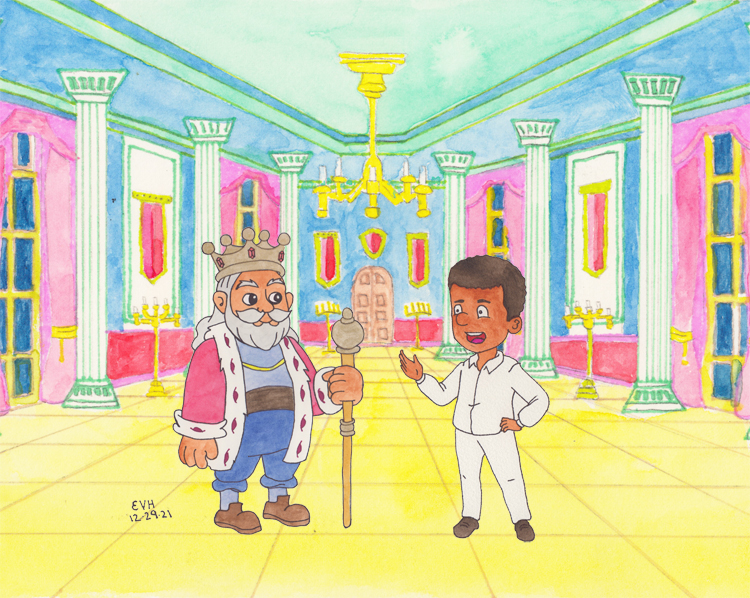
Jataka 362
Sīlavīmaṃsa Jātaka
The Test of Virtue
as told by Eric Van Horn
originally translated by H.T. Francis and R.A. Neil, Cambridge University
originally edited by Professor Edward Byles Cowell, Cambridge University
Note that Jātaka Tales 86 and 290 have the same title and similar stories.
“Virtue and learning.” The Master told this story the while he was at Jetavana. It is about a brahmin who decided to test the power of virtue. The King, they say, owing to the brahmin’s reputation for virtue, regarded him with special honor, beyond what was paid to other brahmins. He thought, “Can it be that the King regards me with special honor because I am endowed with virtue, or because I am devoted to learning? I will just test the comparative importance of virtue and learning.”
So one day he took a coin from the royal treasury board. The treasurer had such respect for him that he did not say a word. This happened a second time, and once again the treasurer said nothing. But on the third occasion he had him arrested for theft. He brought him before the King. And when the King asked what his offence was, he charged him with stealing the King’s property.
“Is this true, brahmin?” asked the King.
“I am not in the habit of stealing your property, sire,” he said, “but I had my doubts as to the relative importance of virtue and learning. I wanted to test which was the greater of the two. So three times I took a coin, and then I was taken into custody and brought before you. Now that I know the greater importance of virtue compared to learning, I no longer wish to live the life of a layperson. I will become a spiritual seeker.”
On obtaining leave to do so and without so much as looking back on his house door, he went straight to Jetavana. There he begged the Master to ordain him. The Master granted him both the lower (“pabbajjā,” or “going forth”) and the higher ordination (“upasampada,” or “acceptance as a bhikkhu or monk”). And after a short time he attained spiritual insight and became an arahant (fully enlightened).
This incident was discussed in the Dharma Hall, about how that brahmin, after proving the power of virtue, took orders, obtained spiritual insight, and became an arahant. When the Master came and asked what they were discussing, on hearing what it was, he said, “Not only this man, but sages of old also put virtue to the test. And by becoming spiritual seekers attained liberation.” And with that he told them this story from the past.
Once upon a time when Brahmadatta was reigning in Benares, the Bodhisatta was born into a brahmin family. And when he came of age, he mastered every liberal art at Takkasilā University. On his return to Benares, he went to see the King. The King offered him the post of family priest. And as he kept the five moral precepts, the King looked upon him with respect as a virtuous man.
“Can it be,” he thought, “that the King regards me with respect as a virtuous man or as one devoted to the acquisition of learning?” And the whole story corresponds exactly with the modern instance, but in this case the brahmin said, “Now I know the great importance of virtue compared with learning.”
And then he spoke these five stanzas:
Virtue and learning I had put to test.
And now I doubt not virtue is the best.
Virtue excels vain gifts of form and birth,
Apart from virtue learning has no worth.
A prince or peasant, if to sin enslaved,
In neither world front misery is saved.
Men of high caste with those of base degree,
If virtuous here, in heaven will equal be.
Not birth, nor lore, nor friendship still prevails,
Pure virtue only future bliss entails.

Figure: Singing the praises of virtue
Thus did the Great Being sing the praises of virtue. And having gained the consent of the King, that very day he went to the Himālaya region. There he adopted the holy life of a recluse. He developed the Five Faculties (1) faith/confidence, 2) energy, 3) mindfulness, 4) concentration/samadhi and 5) wisdom/insight) and the Attainments (jhānas), and he became destined to be reborn in the Brahma world.
The Master here ended this lesson and identified the birth: “At that time it was I who put virtue to the test and adopted the holy life of a recluse.”
